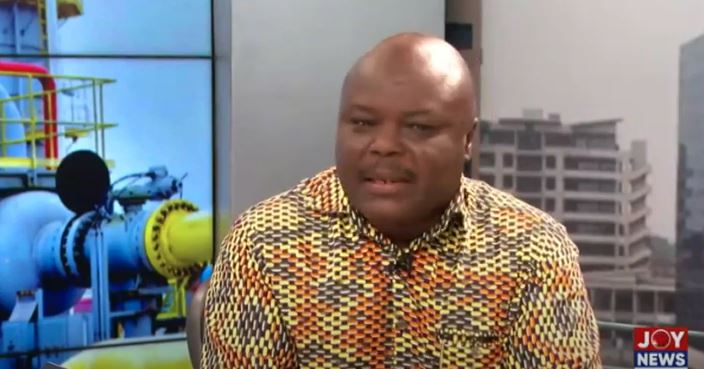Minister for Public Enterprises, Joseph Cudjoe, has said that he is an advocate of fat salaries for public sector workers who perform.
At a press briefing in Accra on Wednesday, Joseph Cudjoe explained, however, that payment of fat salaries becomes an issue when the worker fails to perform his or her duties.
“Maybe you are talking to the wrong person on salaries when it is fat. I openly declare anywhere that I am an advocate for a good salary and if this is bad tell me this is bad…If the person is performing and being paid a good salary, I would clap for the person.
"If the person is not performing and taking that good salary, you exact performance from the person because you are paying the person. So I am a lover of fat salary. You can’t use me to pay people badly, I always speak for people who are not paid well,” he said.
The minister justified his position by indicating that what makes a country wealthy, "is for people to be paid good salaries”.
He added, “when people get good salaries, it is when they can cater for their needs and also save in the financial system then deposits build up in the financial system. [You] give loans to businesses and individuals who need them. So if someone is taking a good salary, the issue is always whether the person is giving an output that reflects the salary, that is all.”

The minister also dispelled suggestions for the sacking of non-performing CEOs of state-owned enterprises stressing the fault may not be entirely theirs.
“They are reporting losses because we are not willing to pay the right prices. Because to report profit means that revenue must be generated, cost should be paid, interests should be generated, taxes, utilities, tariffs, every cost should be paid for and you record profits.
“Their reporting of profits depends on us, not the managers because the manager might be technically competent, professionally savvy and everything, but right pricing or wrong pricing is what would determine their profitability,” he stated.
Meanwhile, the Finance Ministry has revealed that state-owned enterprises reported a GH¢5.3 billion loss in their operations in the 2020 fiscal year.
It added that some SOEs have been reluctant to submit annual accounts since 2017.
To fix the poor state of some of the entities, the Finance Ministry is warning it will no longer support requests for assistance by SOEs that fail to meet the reporting requirements specified in the Public Financial Act.
Deputy Finance Minister, Dr John Kumah, announced this at a forum held by the State Interest and Governance Authority (SIGA) in Accra on Friday, January 28, 2022.
Latest Stories
-
CLOGSAG vows to resist partisan appointments in Civil, Local Government Service
50 minutes -
Peasant Farmers Association welcomes Mahama’s move to rename Agric Ministry
52 minutes -
NDC grateful to chiefs, people of Bono Region -Asiedu Nketia
54 minutes -
Ban on smoking in public: FDA engages food service establishments on compliance
55 minutes -
Mahama’s administration to consider opening Ghana’s Mission in Budapest
57 minutes -
GEPA commits to building robust systems that empower MSMEs
59 minutes -
Twifo Atti-Morkwa poultry farmers in distress due to high cost of feed
1 hour -
Central Region PURC assures residents of constant water, power supply during yuletide
1 hour -
Election victory not licence to misbehave – Police to youth
1 hour -
GPL 2024/2025: Nations thrash struggling Legon Cities
1 hour -
Electoral offences have no expiry date, accountability is inevitable – Fifi Kwetey
1 hour -
Ghanaians to enjoy reliable electricity this Christmas – ECG promises
1 hour -
Police deny reports of election-related violence in Nsawam Adoagyiri
1 hour -
‘We’re not brothers; we’ll show you where power lies’ – Dafeamekpor to Afenyo-Markin
1 hour -
EPA says lead-based paints are dangerous to health, calls for safer alternatives
3 hours

